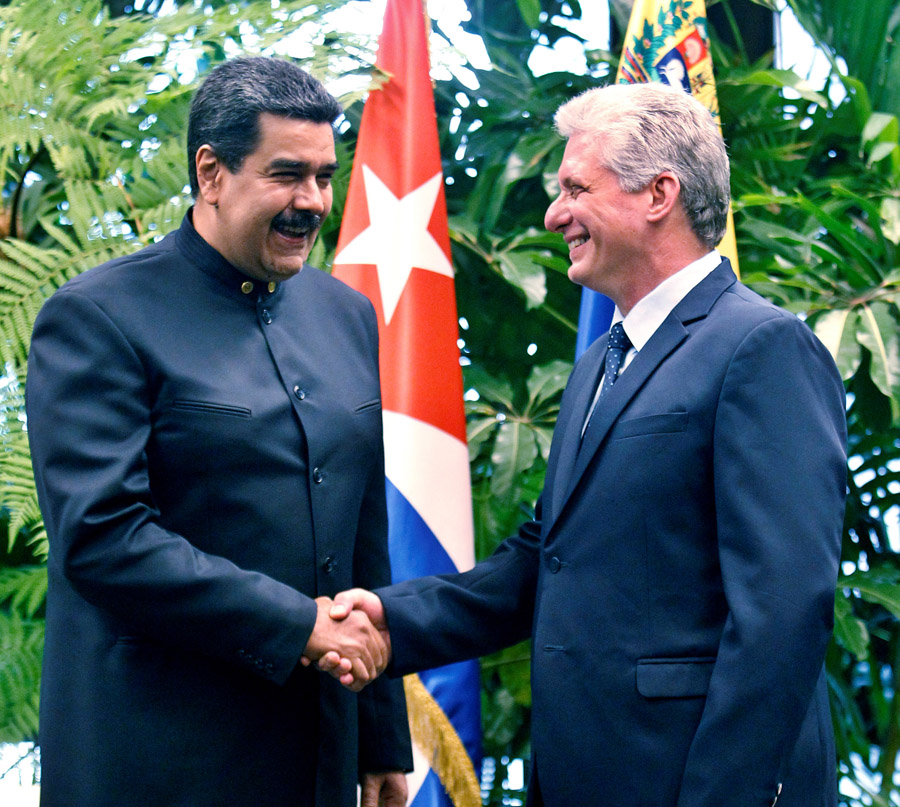Cuba should be prepared to face tougher US policy
China Daily | Updated: 2018-04-23 10:04

HAVANA - The United States is closely monitoring events in Cuba, seeking to take advantage of the current transition of power to push for regime change, prominent political scientists have said.
"They are stalking, like wild beasts, because they think this is a moment of weakness in which they can attack," said Luis Rene Fernandez, a research professor at the University of Havana's Center for United States and Hemispheric Studies.
On Thursday, Raul Castro, 86, finished two terms as Cuba's president, passing the baton to his successor, Miguel Diaz-Canel, who on Saturday met with Venezuelan President Nicolas Maduro in Havana.
While Castro will continue to help make key decisions, as the first secretary of the Central Committee of the ruling Communist Party of Cuba, he will no longer be involved in the day-to-day management of national affairs.
Washington sees the absence of the heavily symbolic Castro name as a window of opportunity, Fernandez said, noting that alongside his brother Fidel Castro, who died in 2016, Raul played a role in the 1959 Revolution.
"Fidel Castro is physically gone. They always thought that by killing him, the Cuban Revolution could disappear because he was evidently a factor of strength," Fernandez said.
Former US president Thomas Jefferson once said Cuba "would be the best addition to the union", a phrase that reflects Washington's attitude toward the island, said Fernandez.
Cuba's new government, he said, faces the challenge of maintaining a strong Communist party, strengthening institutions and continuing economic reforms as it grapples with a more hardline US administration.
Though Castro's government has taken many steps to modernize the economy, "much still remains to be done", said Fernandez, referring to guidelines designed to be implemented between 2016 and 2021.
The guidelines, approved in April 2011 by the sixth Congress of the PCC and updated in April 2016, include some 300 measures.
"We must be prepared to face a tougher US policy, whoever the president might be," he said.
























